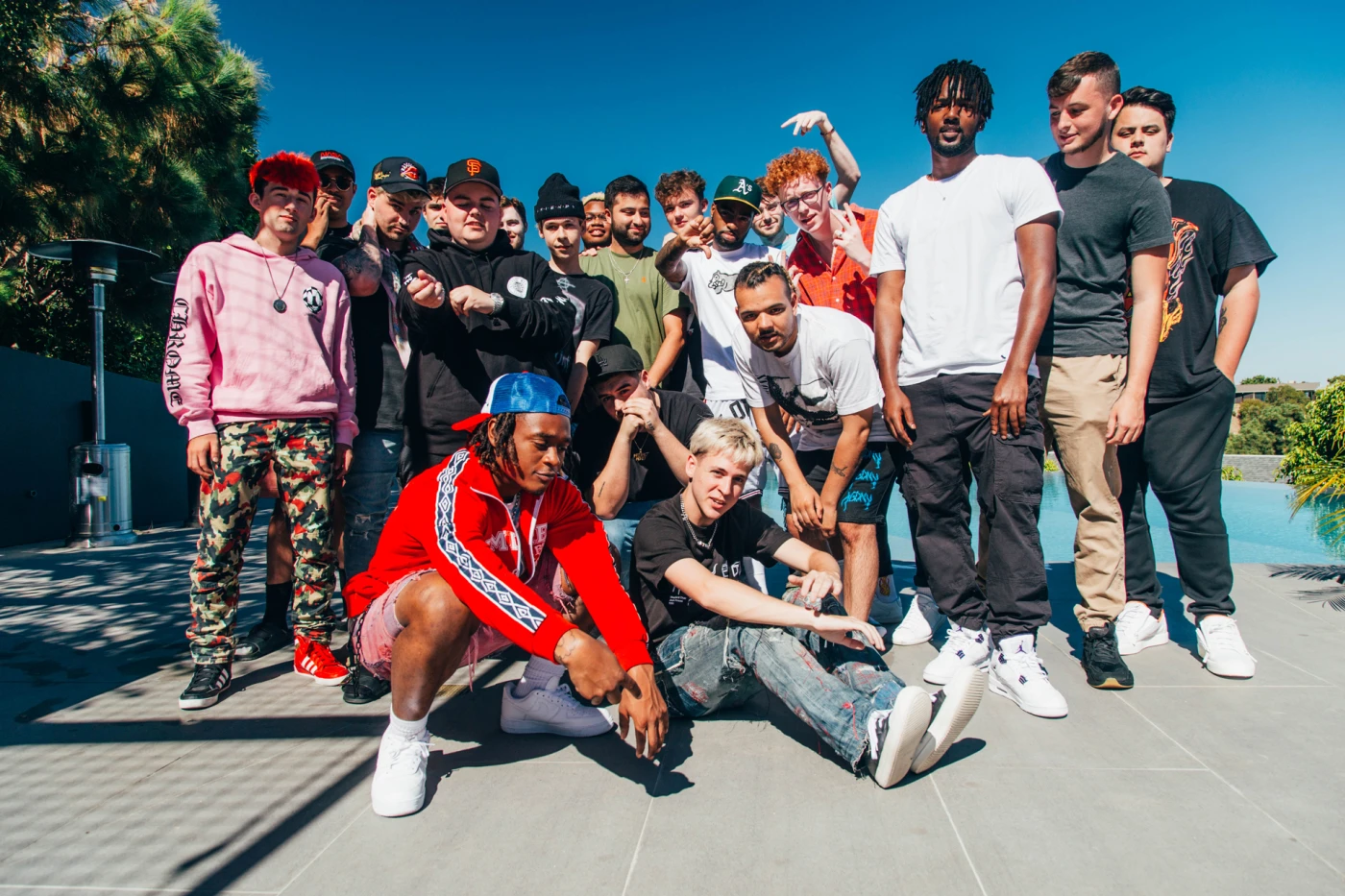As a music producer, making money can be a challenge, especially in the competitive and constantly evolving music industry. However, with the right skills, knowledge, and mindset, there are many opportunities to earn a living and even thrive as a music producer in 2023.
In this blog post, we’ll explore eight ways to make money as a music producer, including online beat selling, ghost production, music licensing, sound design, mixing and mastering, music education, session musician services, and live performances.
Sell Beats Online
One of the most popular ways for music producers to make money is by selling beats online. In recent years, the online beat-selling market has exploded, with many producers making a substantial income by selling their beats to artists, YouTubers, and content creators.
One of the main benefits of selling beats online is that it allows music producers to reach a global audience and connect with potential customers from all over the world. There are many online platforms for selling beats, such as Beatstars, Airbit, and Traktrain, which provide a marketplace for music producers to showcase their beats and connect with buyers.
Tips for successful beat selling include:
- Creating high-quality, original beats that stand out from the competition
- Building a strong online presence through social media, YouTube, and other online channels
- Networking with other music producers and industry professionals to expand your reach and opportunities
- Offering flexible pricing and licensing options to appeal to a wide range of customers
Real World Example: Taz Taylor, founder of Internet Money, started selling beats online in 2012 and has since become one of the most successful and influential music producers in the online beat-selling market, earning millions of dollars in revenue from his beats.
One important thing to keep in mind when selling beats online is the importance of marketing and promotion. To stand out in a crowded market, it’s important to develop a strong brand and create a strong online presence through social media, email marketing, and other channels.

Taz Taylor and the Internet Money crew of artists and producers
By focusing on creating high-quality beats and promoting them effectively, you can build a loyal following of customers and grow your business over time.
Additionally, consider offering package deals or discounts to incentivize customers to buy more beats from you, and always be open to feedback and suggestions from your customers to improve your offerings.
Ghost Production
Ghost production is a service where music producers create original tracks for other artists or clients without receiving credit or recognition for their work. While ghost production may not provide the same level of creative satisfaction as creating music under your own name, it can be a lucrative and stable source of income for music producers.
Benefits of ghost production include:
- Consistent work and income without the pressure of building a personal brand or following
- Opportunities to work with high-profile clients and artists in the music industry
- The ability to focus solely on music production without distractions or obligations outside of the studio
To become a ghost producer, it’s important to build a strong network of industry contacts and establish a reputation for high-quality work and professionalism. Platforms like SoundBetter and Upwork can be great resources for finding ghost production opportunities.
Real World Example: Dutch music producer Maarten Vorwerk has made a successful career out of ghost production, creating tracks for some of the biggest names in the electronic dance music (EDM) industry, including David Guetta, Dimitri Vegas & Like Mike, and Tiësto.
Music Licensing
Music licensing involves selling the rights to use your music in various media, such as film, TV shows, commercials, video games, and more. This can be a lucrative way to earn passive income as a music producer, as it allows you to earn royalties from your music without the need for ongoing promotion or performance.
Benefits of music licensing include:
- Opportunities to reach a wide audience and potentially earn significant royalties from successful placements
- The ability to create music on your own terms without the pressure to follow current trends or styles
- The potential for long-term passive income from successful placements
To get started with music licensing, you can submit your music to music libraries, sync agencies, and other music licensing platforms such as Musicbed, Artlist, and Epidemic Sound.
It’s important to understand the different types of music licenses and how they work, as well as the terms and conditions of each platform to ensure that you are properly compensated for your work.
Real World Example: Australian music producer Kevin MacLeod has made a name for himself in the music licensing industry by offering thousands of original music tracks for free on his website, with the option for clients to donate or purchase licenses for his music for commercial use. His music has been used in countless films, TV shows, and commercials, earning him a substantial income from royalties.
Sound Design
Sound design involves creating and manipulating audio elements, such as synthesizer presets, samples, and sound effects, to create unique and original sounds for use in music production and other media. Sound design can be a valuable skill for music producers, as it allows them to create their own signature sounds and stand out in a crowded market.
Benefits of sound design include:
- Opportunities to work on a wide range of projects, from music production to film and video games
- The ability to develop your own unique style and sound, which can lead to increased demand for your services
- The potential to earn a higher rate of pay for specialized skills and knowledge in the field
To become a sound designer, it’s important to develop your skills in audio production and stay up to date with the latest trends and technologies in the field. Networking with other sound designers and industry professionals can also help you to find new opportunities and build your reputation.
Real World Example: British music producer and sound designer Richard Devine has created sound design for numerous film and TV productions, as well as video games and music albums. He has also released several sound design libraries for use in music production, earning him a substantial income from his work.
Mixing and Mastering
Mixing and mastering are essential steps in the music production process, involving the balancing and processing of audio elements to create a polished and professional sound. Many music producers specialize in mixing and mastering services, offering their skills to other artists and clients for a fee.
Benefits of mixing and mastering include:
- Consistent work and income, as mixing and mastering are essential steps in the music production process
- Opportunities to work with a wide range of artists and genres, which can help you to develop your skills and portfolio
- The potential for long-term relationships with clients who may require ongoing mixing and mastering services
To become a mixing and mastering engineer, it’s important to develop your skills in audio production and invest in high-quality equipment and software. Building a strong network of industry contacts and showcasing your work online can also help you to find new clients and opportunities.
Real World Example: American music producer and mixing engineer Dave Pensado has worked with some of the biggest names in the music industry, including Beyoncé, Justin Timberlake, and Mariah Carey. He also hosts a popular YouTube series, “Pensado’s Place,” where he shares his knowledge and expertise with other music producers and enthusiasts.
Another important aspect of offering mixing and mastering services is the need to stay up to date with the latest industry trends and techniques. This means investing in high-quality equipment and software, attending industry conferences and workshops, and constantly seeking out new knowledge and techniques to improve your craft.
Additionally, it’s important to develop strong communication skills to ensure that you understand your clients’ needs and can deliver a final product that meets their expectations. By offering high-quality mixing and mastering services and building a strong reputation in the industry, you can attract a steady stream of clients and build a successful career as a music producer.
Music Education
Music education can be a rewarding and profitable way for music producers to share their knowledge and skills with others. There are many opportunities for music producers to teach music production, either through online courses, workshops, or one-on-one coaching sessions.
Benefits of music education include:
- The ability to share your passion for music production and help others to develop their skills and creativity
- The potential to earn a high rate of pay for specialized knowledge and skills in the field
- The opportunity to build your reputation as an expert in the field and potentially attract new clients or opportunities
To become a music educator, it’s important to develop a strong understanding of music production and invest in high-quality teaching materials and resources. Building a strong online presence through social media and other online channels can also help you to attract students and promote your services.
Real World Example: Canadian music producer and educator ill.Gates has built a successful career teaching music production online through his website and courses on platforms like Udemy. His courses cover a wide range of topics, from music theory to sound design, and have helped thousands of students to develop their skills in music production.
Music Consulting
Music consulting involves providing advice and guidance to other artists and music industry professionals on a wide range of topics, from branding and marketing to music production and career development. Many music producers have developed expertise in these areas through their own experiences in the music industry, making them valuable resources for others looking to navigate the complex and competitive landscape.
Benefits of music consulting include:
- The ability to use your knowledge and experience to help others achieve their goals in the music industry
- Opportunities to work with a wide range of clients, from independent artists to major record labels and music companies
- The potential to earn a high rate of pay for specialized knowledge and skills in the field
To become a music consultant, it’s important to develop expertise in areas like music production, branding, marketing, and business development. Building a strong network of industry contacts and showcasing your expertise through speaking engagements, writing, and other online channels can also help you to attract new clients and opportunities.
Real World Example: American music producer and consultant Michael Elsner has worked with some of the biggest names in the music industry, including Justin Timberlake, Pink, and Keith Urban. He provides consulting services to other artists and music companies on a wide range of topics, including songwriting, music production, and marketing.
Sync Licensing
Sync licensing involves licensing your music for use in TV shows, movies, commercials, and other media. Many music producers have found success in the sync licensing industry, as it can provide a steady stream of income and exposure for their music.
Benefits of sync licensing include:
- The potential for passive income from royalties on licensed music
- Exposure to new audiences through media placements
- Opportunities to work on a wide range of projects, from small independent films to major motion pictures
To become successful in sync licensing, it’s important to develop a strong understanding of the music licensing industry and the types of music that are in demand for different types of media. Building relationships with music supervisors and other industry professionals can also help you to find new opportunities and placements for your music.
Real World Example: American music producer and composer Jingle Punks have built a successful career in the sync licensing industry, with their music featured in numerous TV shows, movies, and commercials. They offer a wide range of music libraries for licensing, from upbeat pop and rock to cinematic orchestral compositions.
Conclusion
As you can see, there are many ways for music producers to make money in the music industry in 2023. Whether you specialize in beat-making, music production, sound design, or any other area, there are plenty of opportunities to build a successful career and earn a living doing what you love.
To succeed in the music industry, it’s important to stay up to date with the latest trends and technologies, build a strong network of industry contacts, and continually work on developing your skills and knowledge. By focusing on your strengths and finding ways to add value to the industry, you can build a fulfilling and profitable career in music production.






